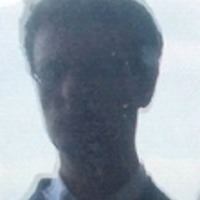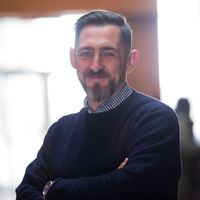Talks by Shannon O'Rourke

What is intelligence for Kant? In this paper I investigate the framework in which Kant’s human be... more What is intelligence for Kant? In this paper I investigate the framework in which Kant’s human being makes herself so as to be intelligible or enlightened. In order to understand what the human being can become, we first have to understand what the human being ought to become. Once we comprehend where practical reason leads the human being, i.e. the categorical imperative and the kingdom of ends, we are able to understand what the human being ought to become. However, it is from understanding what the human being does become of herself that we understand the limitations of practical reason, or at least the limits of the agent exercising it. The theoretical aims of reason direct self-making towards the infinite, while it is in the finite practical world of becoming that the human does make herself. In this way, this paper presents the outline for thinking intelligence as historically enacted in Kant’s writings. The Anthropology shows a different side of Kant on this score, one who shows how intelligence is enacted a posteriori.
Kant’s anthropology lecture series began more than a decade before the publication of the “What i... more Kant’s anthropology lecture series began more than a decade before the publication of the “What is Enlightenment” essay. The contents of the lecture series, along with the later publication of the Anthropology text, depicts the values of the enlightenment as central to development of prudence [Klugheit] and wisdom [Weisheit]. My thesis is that the “What is Enlightenment” motif, i.e. freeing oneself from self incurred minority, is implicit and central to Kant’s overall aim for Anthropology From A Pragmatic Point of View. The anthropology is an investigation meant to discover, not what the human being is, this is what Kant describes as physiological anthropology, but rather it is meant to investigate what the the human being, through her freedom, can become and should become.

We live in the epoch of the Anthroposcene? As Latour says so many times throughout his recent wor... more We live in the epoch of the Anthroposcene? As Latour says so many times throughout his recent work, but what does this mean? It means, succinctly, that we live in a time where human beings have the ability to alter the course of planetary history, and while the study of ecology is not new; many of the concerns ecologists were aware of in the 1960s and shortly thereafter, are now capable of being demonstrated, corroborated, and mapped across multiple disciplines and thousands of scientific works from more than seventy plus countries (this number form IPCC). The headline of the 2007 IPCC report makes the poignant assertion that, “warming of the climate system is unequivocal.” We live in a time where the existence of the human species will leave evidence of our presence; perhaps long after we have exhausted the resources that sustain the delicate balance of life we are familiar with. The anthroposcene is a (tentative) geological chronological term that marks the epoch when human began to impact the world on a global biogeophysical scale.
More than one hundred million people live less than one meter above sea level. Their conservative expectations put Los Angeles and Amsterdam underwater in the next 200 years, Hamburg, St. Petersburg, San Francisco, Lower Manhattan underwater between 250-350 years. These are just some of the concerns, which inform a Latourian politics of nature, one very different from a Kantian perspective which bifurcates nature and the human being. My goal is draw out Latours views on agency of the human and nonhuman by contrasting these with Kant’s Humanism.
Papers by Shannon O'Rourke

Facing Gaia: Eight Lectures on the New Climate Regime (FG, 2017) in significant ways represents a... more Facing Gaia: Eight Lectures on the New Climate Regime (FG, 2017) in significant ways represents an ecological application of Latour’s lifelong development of an anthropology of the moderns. Latour tells us in 2008, in an acceptance speech for the Siegfried Unseld Prize, that for more than thirty years he has been working towards the development of a system. This system was the focus of his 2012 An Inquiry into the Modes of Existence (AIME). This system aims at providing a metaphysical framework in which moderns, or those who have never been modern, describe the various ways—modes—with which one can and does make sense of the world. Anthropology here can be understood as attempts to describe the peoples of the world, how they situate and make sense of themselves and the worlds of others, whereas metaphysics here is how these worlds are cleaved at the joints. Thus, while FG is not the outline of his system, which was the project of AIME, it relies on the schemes developed there to pro...











Uploads
Talks by Shannon O'Rourke
More than one hundred million people live less than one meter above sea level. Their conservative expectations put Los Angeles and Amsterdam underwater in the next 200 years, Hamburg, St. Petersburg, San Francisco, Lower Manhattan underwater between 250-350 years. These are just some of the concerns, which inform a Latourian politics of nature, one very different from a Kantian perspective which bifurcates nature and the human being. My goal is draw out Latours views on agency of the human and nonhuman by contrasting these with Kant’s Humanism.
Papers by Shannon O'Rourke
More than one hundred million people live less than one meter above sea level. Their conservative expectations put Los Angeles and Amsterdam underwater in the next 200 years, Hamburg, St. Petersburg, San Francisco, Lower Manhattan underwater between 250-350 years. These are just some of the concerns, which inform a Latourian politics of nature, one very different from a Kantian perspective which bifurcates nature and the human being. My goal is draw out Latours views on agency of the human and nonhuman by contrasting these with Kant’s Humanism.